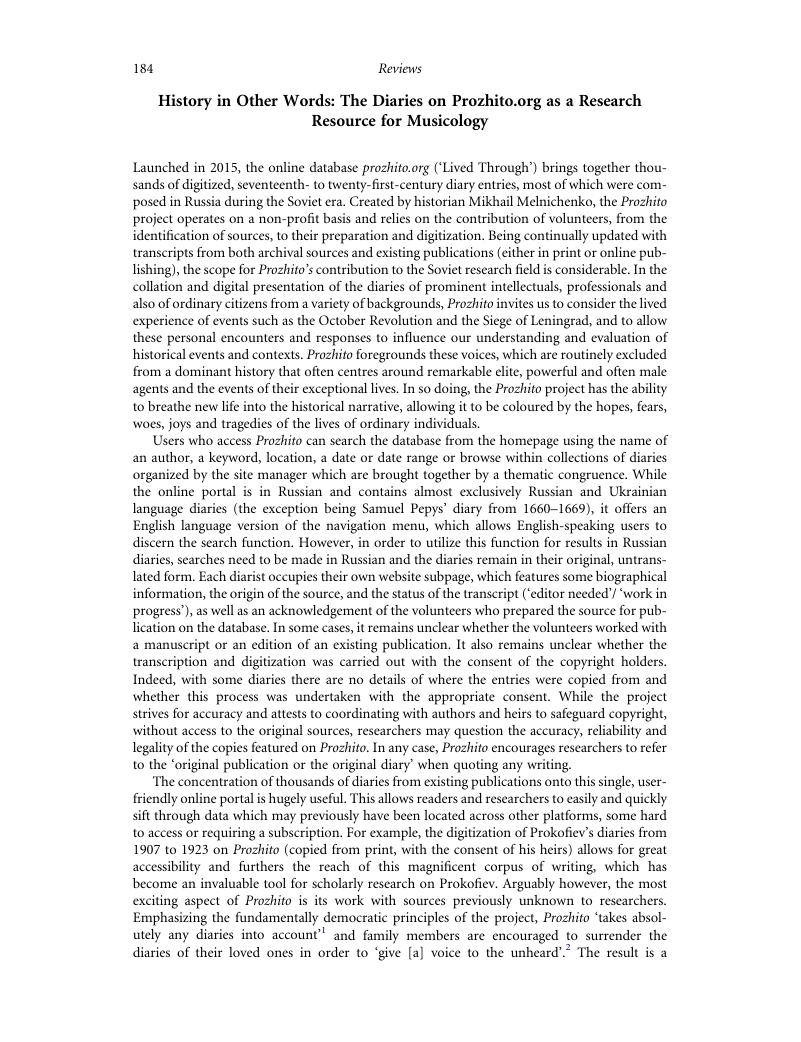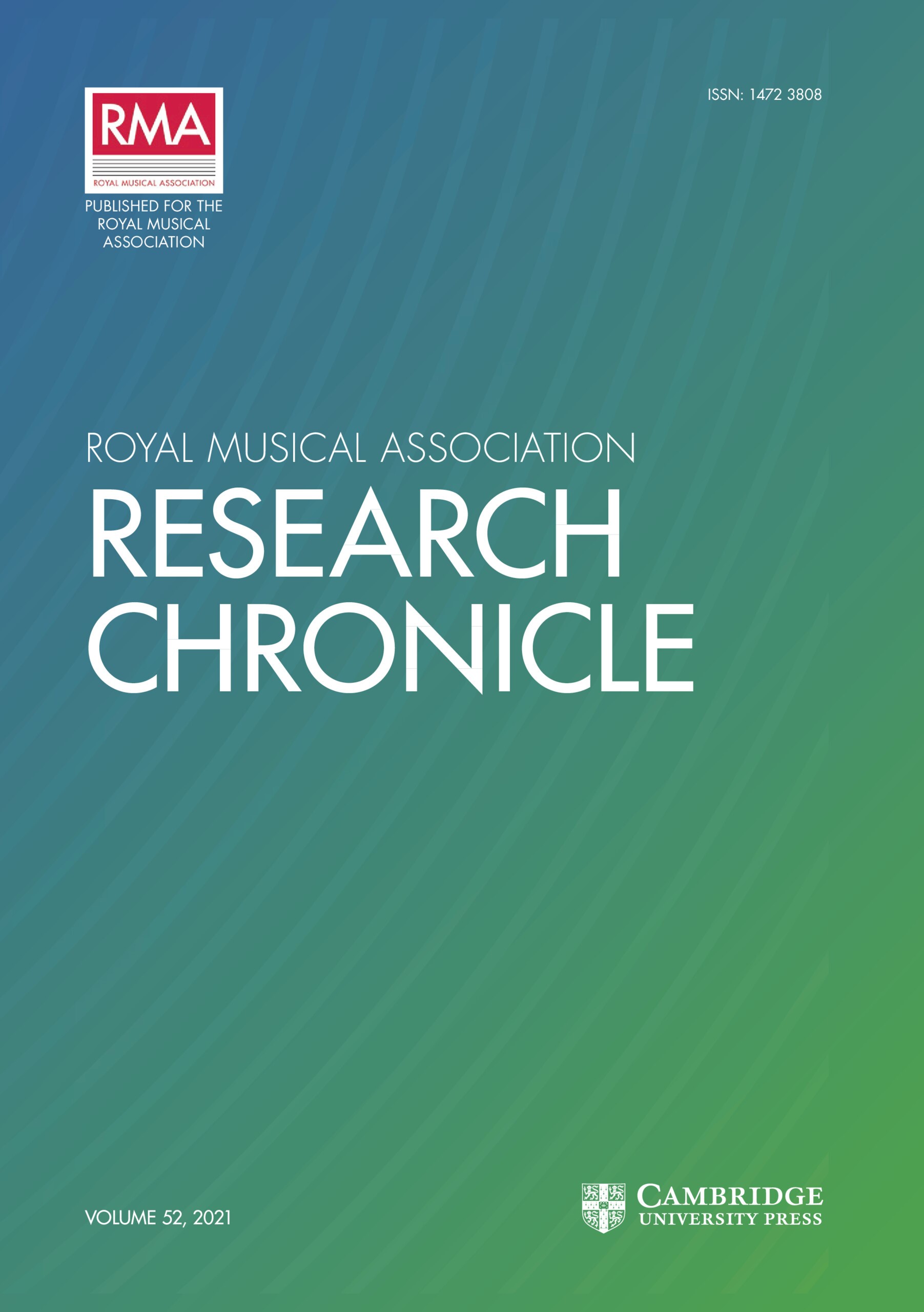No CrossRef data available.
Article contents
History in Other Words: The Diaries on Prozhito.org as a Research Resource for Musicology
Published online by Cambridge University Press: 01 January 2019
Abstract

- Type
- Reviews
- Information
- Copyright
- Copyright © 2019, Eirini Diamantouli
References
Notes
1 ‘Prozhito’, Meduza, prozhito.org/about (accessed 5 December 2018).
2 Mikhail Kaluzhsky and Mikhail Melnichenko, ‘Reading Other People's Diaries in Russia’, Open Democracy, 23 November 2017, www.opendemocracy.net/od-russia/mikhail-kaluzhsky/reading-other-peoples-diaries-in-russia-prozhito (accessed 5 December 2018).
3 My research focuses on Athens, Greece, in terms of the resonance of Russian revolutionary theory and practice abroad.
4 A. I. Dimitriev, Diary, 24 February 1948, Prozhito, http://prozhito.org/person/418.
5 L. V. Shaporina, Diary, 6 October 1948, Prozhito, http://prozhito.org/person/198.
6 The situation is made much more straight-forward when texts are provided by the authors themselves, as in the case with many, more contemporary sources. This would however constitute cause to question the intention of author in publishing this material.
7 Heidi A. McKee and James E. Porter, ‘The Ethics of Archival Research’, College Composition and Communication, 64 (2012), 59–81 (67).
8 Richard Taruskin, Russian Music at Home and Abroad: New Essays (Oakland, 2016), 121.
9 Jochen Hellbeck, Revolution on My Mind: Writing a Diary under Stalin (Cambridge, 2009), 38.
10 Hellbeck, Revolution on My Mind, 356.
11 On this see also: Véronique Garros, et al., eds, Intimacy and Terror: Soviet Diaries of the 1930s (New York, 1998).
12 ‘Prozhito’, Meduza, prozhito.org/about (accessed 5 December 2018).
13 Hellbeck, Revolution on My Mind, 356.


